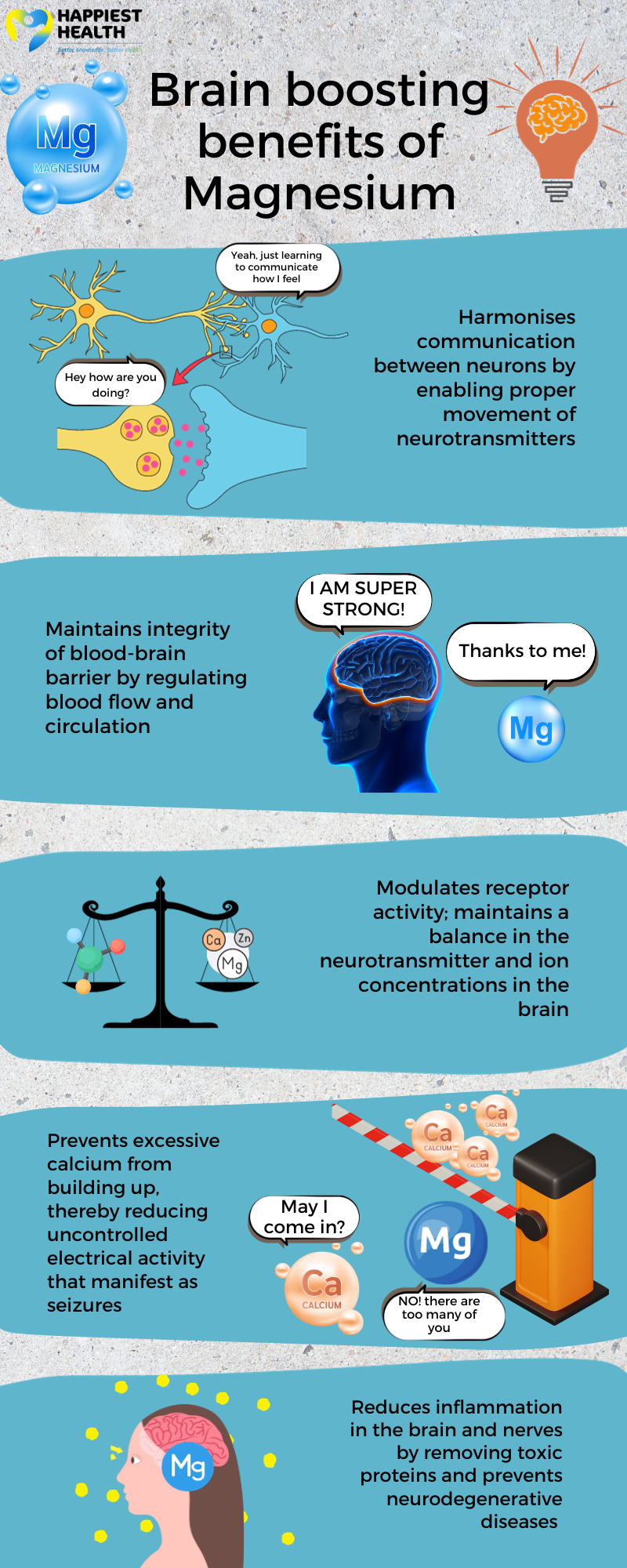Magnesium, an often overlooked mineral, is a treasure trove of health benefits for the human body. Magnesium’s benefits in reducing blood pressure and overall inflammation are known; however, it is also crucial for brain health.
“Magnesium helps reduce inflammation in the brain, which protects it from various neurodegenerative conditions,” Dr Rohit Pai, Neurologist, KMC Hospital, Mangaluru, tells Happiest Health. He explains that magnesium lowers the levels of inflammatory chemicals like prostaglandins in the brain, helping maintain the integrity of the blood-brain barrier.
This mineral, readily available in nuts, cereals, pumpkin seeds, peanut butter, brown rice, and cocoa powder, also checks the activity of neurotransmitters in the brain. Dr Pai explains that magnesium lowers the activity of the NMDA receptor and lowers its excessive excitation. Magnesium also enhances the activity of GABA, an inhibitory neurotransmitter and hence aids communication between neurons. Studies also find magnesium increases levels of GABA, which helps with sleep and relaxation.
Good brain health requires other minerals like calcium. However, excessive calcium can cause seizures. Magnesium plays a vital role in lowering calcium concentrations and reducing the occurrence of seizures.
There is more to magnesium’s abilities. This tiny white metal plays a significant role in memory and learning as it increases protein levels called brain-derived neurotrophic factor. This protein is primarily involved in neuron growth and development, which in turn helps improve memory.
Owing to the crucial roles magnesium plays in the brain, a deficiency of this micronutrient can lead to several chronic illnesses. “Short-term magnesium deficiency can cause seizures due to increased calcium concentration and reduced GABA levels,” says Dr Pai.
Long-term magnesium deficiency can lead to neurodegenerative diseases like Alzheimer’s. This is because lower amounts of magnesium hamper the clearing of toxic proteins like amyloid beta. “It can also precipitate Parkinson’s disease where excessive synuclein [toxic protein often seen in Parkinson’s] accumulation is seen due to lack of magnesium,” says Dr Pai. He adds that since reduced magnesium levels disrupt the inflammation, it can also exacerbate multiple sclerosis.
The below infographic is a pictorial representation of the role of magnesium in brain health.
Read more: Magnesium, the go-to mineral for Happiest Health

















